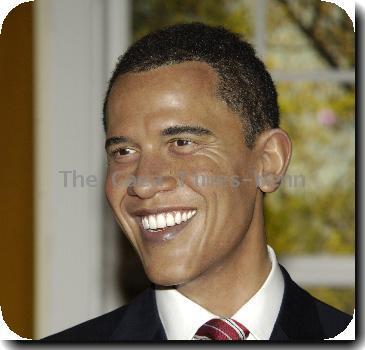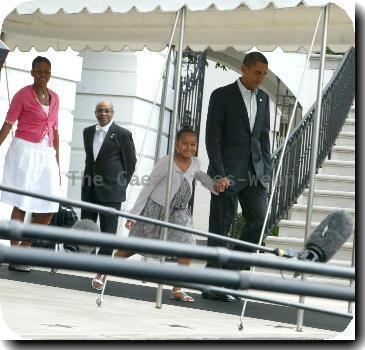Obama contends GOP ’sat on the sidelines’ while he tried to fix the economy
By Julie Pace, APWednesday, June 2, 2010
Obama challenges Republicans to help on economy
PITTSBURGH — President Barack Obama seized on the nation’s worst oil spill Wednesday to argue for rolling back billions of dollars in oil company tax breaks and using the money to speed the way to a clean-energy future. “The next generation will not be held hostage to energy sources from the last century,” he said.
The White House released excerpts of Obama’s speech while he was en route to a speech at Pittsburgh’s Carnegie Mellon University. In his remarks, the president aggressively sought to cast Republicans as a party that fought him on tax cuts for small businesses, tax credits for college tuition, new spending on clean energy and more.
The timing comes as Obama, juggling the environmental disaster in the Gulf and mounting foreign crises, tried to assure the country that he is also working on the people’s chief concern — the economy. The president’s political speech also underscores the importance of the upcoming midterm elections, in which the outcome of House and Senate races could shape Obama’s ability to enact his agenda for the rest of his term.
“We already know where their ideas led us,” Obama said of Republicans. “And now we have a choice as a nation. We can return to the failed economic policies of the past, or we can keep building a stronger future.”
Obama also said it is time to roll back “billions of dollars in tax breaks” for oil companies and use the money for clean energy research.
He said the catastrophic Gulf oil spill shows the country must move toward clean energy by embracing energy efficiency, tapping natural gas and nuclear power and eliminating tax breaks for big oil. Obama said that the Gulf spill “may prove to be a result of human error — or corporations taking dangerous shortcuts that compromised safety” — but that deepwater drilling is inherently risky and America cannot rely solely on fossil fuels.
The president said that as the election approaches, he expects Republicans to make the same economic argument they have for decades.
He described that as giving tax cut to millionaires “who didn’t need them,” gutting regulations and putting industry insiders in charge of oversight, as well as shortchanging investment in research.
“To be fair, a good deal of the other party’s opposition to our agenda has also been rooted in their sincere and fundamental belief about government,” Obama said. “It’s a belief that government has little or no role to play in helping this nation meet our collective challenges.”
He added: “It’s an agenda that basically offers two answers to every problem we face: more tax breaks for the wealthy and fewer rules for corporations.”
The White House said Obama’s remarks aim to describe the progress that has been made in building the “new foundation” for growth and prosperity that the president called for a year ago.
That new foundation, Obama said in April 2009, would be built on five pillars: new rules for Wall Street; investments in education, renewable energy and health care; and reductions in federal spending to bring down budget deficits.
In some areas, the president can claim victory. His administration’s $862 billion stimulus plan included significant investments in education and incentives for growth in renewable energy industries. The $1 trillion health care bill he signed into law in March was the largest overhaul of the U.S. health care system in decades.
But not every goal has been met. A sweeping overhaul of Wall Street regulations is still tied up in Congress, with lawmakers hoping to deliver final legislation to the president by July 4.
And the national debt has ticked up to $13 trillion on Obama’s watch. The president contends the recession made it necessary to add to the debt in the short term.
The April unemployment report showed that 15.3 million people remain out of work, and economists say it will take at least five years to regain the nearly 8 million jobs wiped out during the recession.
Pennsylvania Sen. Arlen Specter, who lost his re-election bid last month when he fell to Rep. Joe Sestak in the Senate primary, traveled with Obama to the event, but Seskak wa not expected to attend.
The White House disclosed last week that it had tried indirectly to nudge Sestak out of the race against Specter by tapping former President Bill Clinton to offer him an unpaid position in the administration. Sestak rejected the idea last year.
Tags: Accidents, Barack Obama, Bill Clinton, Energy And The Environment, Energy Policy, Environmental Concerns, North America, Pennsylvania, Pittsburgh, Political Organizations, Political Parties, Recessions And Depressions, United States, Us-obama, Washington


